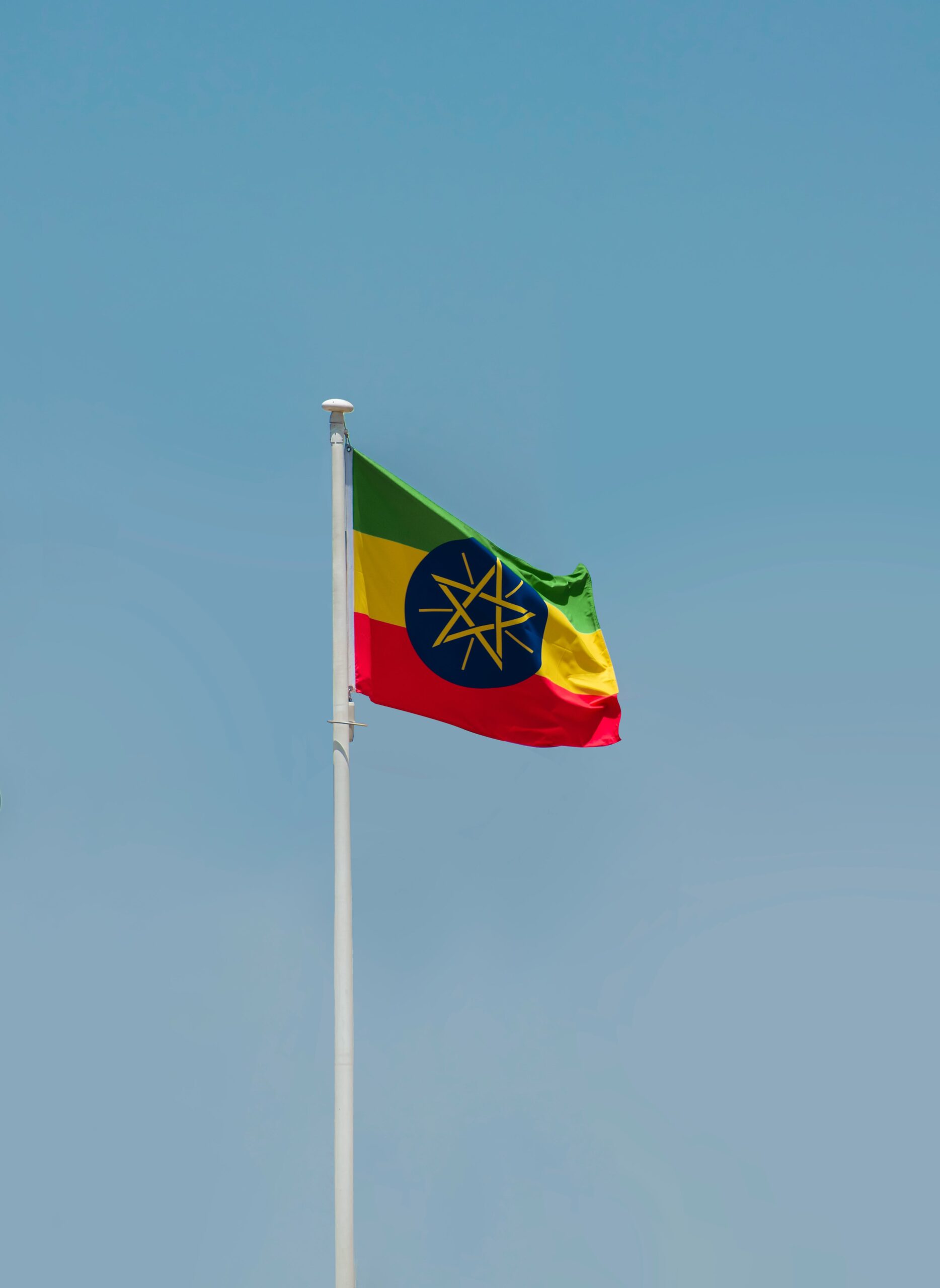Is Ethiopia A Safe Country To Visit?
Is Ethiopia a Safe Country to Visit?
When considering travel destinations, safety is often a top concern for many tourists. Ethiopia, known for its rich history, stunning landscapes, and unique cultural heritage, is increasingly becoming a popular choice for travelers. However, safety is a valid concern for those planning a trip to this East African nation.
Ethiopia has made significant strides in improving safety and security for both its citizens and visitors in recent years. The government has taken measures to enhance law enforcement, combat crime, and ensure the safety of tourists. While the overall safety situation has improved, it is essential for travelers to remain vigilant and take certain precautions to have a trouble-free visit.
Crime rates in Ethiopia vary across different regions, with pickpocketing and petty theft being the most common issues faced by tourists. To mitigate these risks, visitors are advised to keep a close eye on their belongings, especially in crowded areas such as markets and public transportation hubs. Additionally, it is recommended to avoid displaying signs of wealth, as this may attract unwanted attention from pickpockets.
When traveling in Ethiopia, it is crucial to be aware of your surroundings and stay informed about the local situation. Keeping abreast of current events and any potential security threats can help you make informed decisions and stay safe during your stay. Moreover, registering with your embassy or consulate upon arrival is a prudent step in case of emergencies or natural disasters.
Despite these considerations, Ethiopia offers a plethora of attractions and experiences that make it a compelling destination for intrepid travelers. From the ancient rock-hewn churches of Lalibela to the breathtaking Simien Mountains National Park, the country boasts a wealth of cultural and natural wonders waiting to be explored.
While safety should be a priority when planning a trip to Ethiopia, with the right precautions and awareness, visitors can have a memorable and enriching experience in this diverse and fascinating country. By staying informed, being vigilant, and respecting local customs, traveling to Ethiopia can be a rewarding adventure that exposes you to a vibrant tapestry of history, culture, and landscapes.
Safety Measures for Tourists in Ethiopia
Ethiopia, known for its rich history, diverse culture, and stunning landscapes, is a country that offers a unique experience to travelers. While Ethiopia has much to offer, it is essential for tourists to prioritize safety during their visit. By following some key safety measures, visitors can ensure a smooth and enjoyable trip to this fascinating destination.
One of the primary safety measures for tourists in Ethiopia is to stay informed about the current situation in the country. Before traveling, it is advisable to check the latest travel advisories issued by your home country’s government regarding Ethiopia. These advisories often provide valuable information on any potential risks or safety concerns that tourists should be aware of.
When it comes to personal safety, tourists in Ethiopia are advised to remain vigilant, especially in crowded areas such as markets, bus stations, and popular tourist sites. Petty crime, such as pickpocketing and theft, can sometimes occur in these locations. To minimize the risk of becoming a target for criminals, tourists should keep a close eye on their belongings, avoid displaying valuable items openly, and be cautious of their surroundings at all times.
Moreover, it is essential for tourists to respect the local customs and traditions of Ethiopia. Understanding and adhering to cultural norms not only show respect for the local community but also contribute to a positive and safe travel experience. For instance, dressing modestly, particularly when visiting religious sites, and avoiding sensitive topics in conversations can help tourists avoid inadvertently causing offense.
In terms of transportation, tourists should exercise caution when using various modes of transport in Ethiopia. Road safety can be a concern in the country, so it is advisable to choose reputable transportation providers and prioritize vehicles that adhere to safety standards. Additionally, if you plan to explore remote or rural areas, consider hiring a local guide who is familiar with the area and can provide valuable insights and assistance.
Access to healthcare services is an essential aspect of ensuring safety while traveling in Ethiopia. Tourists should have adequate travel insurance that covers medical emergencies and be aware of the locations of the nearest medical facilities in case of any unforeseen health issues. It is also recommended to take necessary precautions regarding food and water safety to prevent illnesses during your trip.
By following these safety measures and being mindful of the local environment, tourists can enjoy a memorable and secure visit to Ethiopia. Embracing the country’s unique attractions while prioritizing safety will help ensure a positive travel experience in this captivating destination.
Crime rates and helpful tips for visitors in Ethiopia
When planning a trip to Ethiopia, it’s essential to consider the safety concerns and understand the crime rates in the country. Like any other destination, Ethiopia has its own set of challenges, but with proper awareness and precautions, visitors can have a safe and enjoyable experience.
Ethiopia, known for its rich history and vibrant culture, attracts tourists from around the world. However, like many developing countries, it does face certain security issues that travelers should be mindful of. The most common types of crimes encountered by tourists in Ethiopia are petty theft, pickpocketing, and scams. These activities often occur in crowded areas, public transportation, and tourist sites.
To ensure a safe stay in Ethiopia, there are several helpful tips that visitors should keep in mind. Firstly, it is advisable to avoid displaying signs of wealth, such as expensive jewelry or electronics, to minimize the risk of becoming a target for theft. Keeping belongings secure and being aware of surroundings can go a long way in preventing petty crimes.
Moreover, it is recommended to use authorized and reputable tour guides or travel agencies to navigate around the country. These professionals are familiar with the local environment and can provide valuable insights to enhance safety during the trip. Additionally, sticking to well-traveled paths and avoiding unfamiliar areas, especially at night, can further reduce the chances of encountering any safety issues.
In case of an emergency or if assistance is required, travelers should have the contact information of their embassy or consulate readily available. Registering with the embassy or consulate upon arrival in Ethiopia is also a proactive step to receive important updates and alerts regarding safety concerns in the region.
While Ethiopia is a fascinating destination with much to offer, being informed and prepared is key to enjoying a safe and memorable visit. By staying vigilant, respecting the local customs, and following these helpful tips, travelers can mitigate potential risks and fully immerse themselves in the beauty and diversity that Ethiopia has to offer.
Political Stability and Its Impact on Tourism in Ethiopia
Ethiopia, a land of rich cultural heritage and stunning landscapes, has seen significant improvements in political stability over the years. The country has faced challenges in the past, but recent efforts towards democratization and peacebuilding have positively impacted its overall stability.
Political stability plays a crucial role in attracting tourists to a destination. In the case of Ethiopia, the government’s commitment to promoting peace and security has helped rebuild confidence among travelers. Visitors are now more willing to explore the country’s historic sites, vibrant markets, and unique wildlife reserves without the looming fear of political unrest.
The Ethiopian government has implemented various initiatives to ensure the safety of tourists. Enhanced security measures, improved infrastructure, and increased presence of law enforcement in tourist areas have contributed to creating a safer environment for visitors. Additionally, the establishment of tourist police units has further strengthened the protection of tourists and provided a sense of security during their stay.
The impact of political stability on tourism is evident in the growing number of visitors to Ethiopia. The country has become a popular destination for travelers seeking adventure, cultural experiences, and historical insights. With its diverse attractions and warm hospitality, Ethiopia has emerged as a must-visit destination in Africa.
Despite the progress made in enhancing political stability, it is essential for tourists to remain informed and vigilant during their visit to Ethiopia. Staying updated on local news, following travel advisories, and respecting the customs and traditions of the Ethiopian people are important steps to ensure a safe and enjoyable trip.
Ethiopia’s improving political stability has significantly boosted its tourism sector. Travelers can now explore the country’s wonders with greater confidence and security, knowing that their well-being is a top priority. By continuing to prioritize peace and security, Ethiopia is on its way to becoming a top tourist destination in Africa.
Natural Disaster Risks and Precautions for Travelers in Ethiopia
When planning a trip to Ethiopia, it’s essential for travelers to be aware of the natural disaster risks that the country faces. Ethiopia is located in the East African region known as the Horn of Africa, which is prone to various natural disasters such as droughts, floods, and earthquakes. While these risks exist, with some careful planning and knowledge, tourists can still have a safe and enjoyable visit to this beautiful country.
One of the most common natural disasters in Ethiopia is drought. The country has experienced frequent droughts in the past, leading to food and water shortages in certain regions. Travelers should stay informed about the current weather conditions and any drought warnings in the area they plan to visit. It’s advisable to carry an adequate supply of water and non-perishable food items, especially if traveling to remote areas.
Floods are another natural disaster that can occur in Ethiopia, particularly during the rainy season, which typically runs from June to September. Travelers should be cautious when traveling to areas that are prone to flooding and avoid crossing flooded rivers or roads. It’s also recommended to check the weather forecast regularly and follow any advice or warnings from local authorities.
Ethiopia is located in a seismically active region, making it susceptible to earthquakes. While major earthquakes are rare in Ethiopia, it’s still important for travelers to know what to do in case one occurs. If you experience an earthquake, remember to drop, cover, and hold on. Identifying safe places in buildings, such as under sturdy tables or doorways, can help reduce the risk of injury.
In addition to droughts, floods, and earthquakes, Ethiopia also faces other natural disaster risks such as landslides and volcanic eruptions. Travelers should research and be aware of the specific risks in the areas they plan to visit. It’s advisable to have a travel insurance policy that covers natural disasters and to keep important documents, such as passports and emergency contact information, in a secure and easily accessible place.
While Ethiopia faces various natural disaster risks, travelers can still enjoy a safe and rewarding trip to this diverse and culturally rich country by staying informed, being prepared, and following any guidance from local authorities. With the right precautions in place, visitors can experience the beauty and hospitality that Ethiopia has to offer while ensuring their safety during their travels.
Conclusion
Ethiopia is a country with diverse attractions and cultural treasures that make it a unique destination for travelers. While some safety concerns exist, being aware of the safety measures can significantly minimize risks and ensure a pleasant visit to this historically rich nation. With proper precautions, such as staying informed about local conditions, respecting local customs, avoiding demonstrations, and being mindful of natural disaster risks, tourists can have a safe and enjoyable experience in Ethiopia.
The safety measures for tourists in Ethiopia play a crucial role in ensuring a positive travel experience. By staying informed about the current situation, travelers can make informed decisions about their itinerary and activities. Additionally, following simple precautions such as avoiding displaying expensive items, using reputable transportation services, and safeguarding personal belongings can help prevent falling victim to petty crimes.
Despite some crime rates in urban areas, helpful tips for visitors in Ethiopia can enhance their safety and overall experience. Familiarizing oneself with emergency contacts, carrying a copy of important documents, staying in secure accommodations, and being cautious in crowded areas are important practices that can help travelers navigate the country safely.
Ethiopia’s political stability has a direct impact on tourism, as unrest or instability in the region can pose risks to visitors. Travelers are advised to stay updated on current events, avoid areas with political demonstrations or gatherings, and follow guidance from local authorities in case of any unforeseen situations. By staying vigilant and informed, tourists can mitigate potential risks related to political instability.
Natural disaster risks are also a consideration for travelers in Ethiopia, given the country’s geography and climate. Earthquakes, flooding, and drought are some of the natural hazards that may occur. Being prepared with a contingency plan, monitoring weather conditions, and following local authorities’ instructions during emergencies are essential precautions for travelers to stay safe in the face of such risks.
While challenges exist, a trip to Ethiopia can be a rewarding experience for those who take the necessary precautions and stay informed about safety measures. By being alert, respectful, and prepared, tourists can explore the country’s beauty, history, and cultural heritage while minimizing risks and ensuring a safe visit to this captivating destination.






